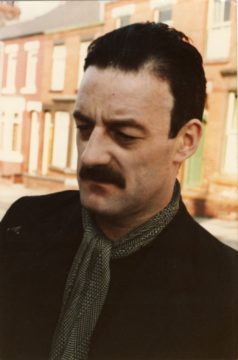
POLDARK
We were a large number of make-up personnel with such a lot of main actors as well as hordes of supporting artistes. So we were all booked into pubs in the area and our make-up room was in the main hotel/pub in Lostwithiel. They were such happy days. The cast were a great bunch of people and made the long hours of work very enjoyable, as well as being in the glorious Cornish countryside in spring. The massive scale set-ups on a popular series like Poldark come as close to feature films as it is possible to get for television. There are all the period carriages and people who own and usually drive them who have to be made-up with facial hair and tie-backs and costumes. This is a whole way of life for them and they are in constant demand. They spend their whole lives around film sets. Their skill in manoeuvring the huge horses and carts, wagons and carriages is spectacular, especially when they have to keep doing take after take and getting the animal and vehicle back on their marks to go again, involving the most intricate manoeuvring. I think there are very few people left who can take over such work.
When we returned to Pebble Mill to start preparing for studio, I found I was to be doing a 100-year make-up on one of the cast. Fortunately, she was an older actress, which gave me a good base to work with and in those days we always had time to have some practice make-up before the day; but the hour-long make-up, layering fine plastic especially made for ageing make-up and drying each layer with a hairdryer, is very unpleasant for the actress and then the removal at the end is almost worse.
When we started on the scenes in studio we had some extra characters who had not been used on film and one of these artistes was Christopher Biggins, who was playing the part of a very frisky ‘Reverend’ Ossie Whitworth, who was up to no good with one of the Fair Ladies in the story. We, of course, had no idea that he would eventually become a National Treasure in I’m A Celebrity, Get Me Out Of Here, but even way back then his wonderful disposition shone out. He was the sunniest, most cheerful person and had the most uplifting effect on everyone around him. He is also a great entertainer and there was never a dull moment when Biggie was in the make-up room; he used to have us all crying with laughter. I was not surprised to see him overcome such ghastly challenges in the jungle and become chosen as The King by the whole country. It couldn’t happen to a nicer chap.
(from ‘Dishing the Dirt’ by Maggie Thomas available on Amazon authors on line)






